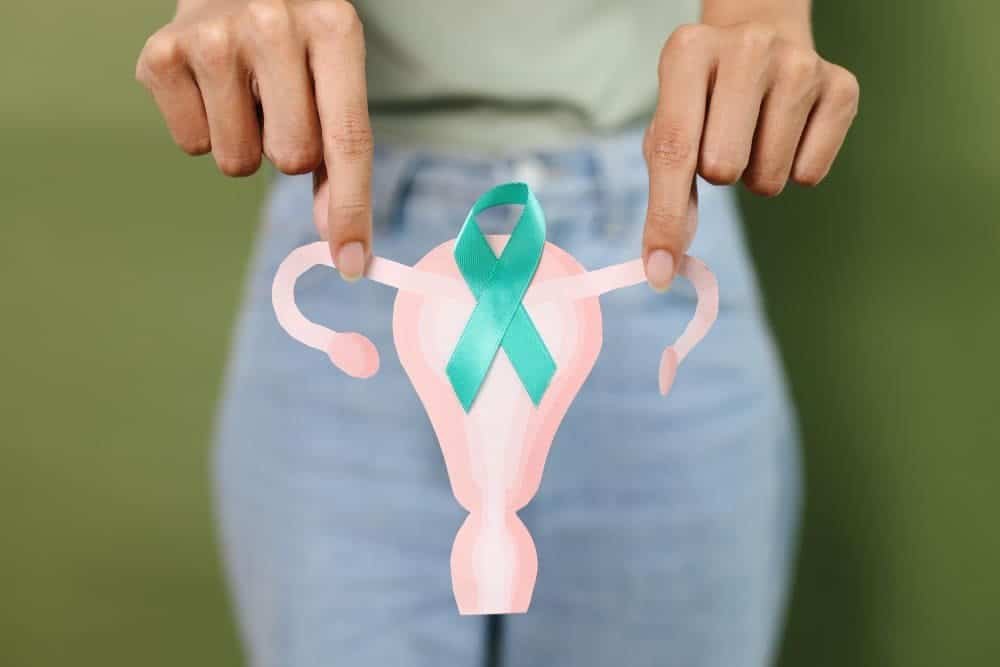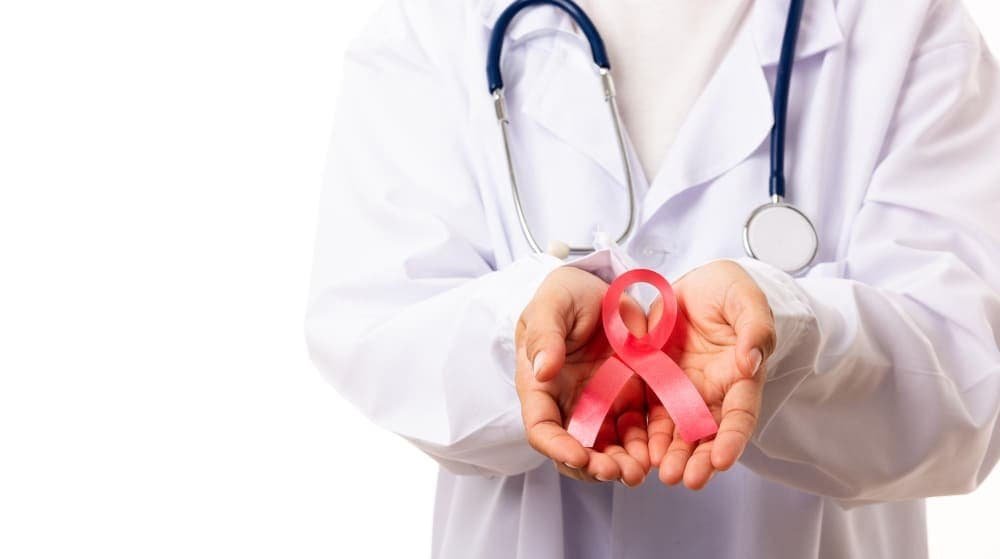Many women panic after hearing about fibroids and cancer. Before fear takes over, understanding the truth about can a fibroid be cancerous helps you stay in control, ask the right questions, and make confident decisions for your reproductive health. 💛

✅ The Truth: Are Fibroids Cancerous or Noncancerous?
Let’s start with the most important point a woman needs to hear:
Uterine fibroids are almost always benign tumors.
Fibroids are noncancerous growths that form in the uterine muscle tissue. They are extremely common — especially among women in their 30s to 50s — and the vast majority never become cancer.
So, if you’ve been diagnosed with a fibroid, take a breath 🙏 — the odds are overwhelmingly in your favor.
The Crucial Question: Can a Fibroid Become Cancerous? 🤔
This is one of the most common questions women have, and it’s essential to get a clear answer. The short answer is that it is incredibly rare for a fibroid to be cancerous. A uterine fibroid itself does not turn into cancer. The risk of a fibroid being cancerous is less than 1 in 1,000. These rare cancerous tumors are not actually fibroids at all, but a different type of tumor called a leiomyosarcoma.
A leiomyosarcoma is a malignant tumor that develops from the smooth muscle cells of the uterus, the same type of cells from which benign fibroids grow. Because they originate from the same tissue, it can be challenging to tell the difference between a noncancerous fibroid and a sarcoma based on imaging tests alone.
It’s important to understand that a benign tumor does not develop cancerous cells over time; a leiomyosarcoma is a cancer from the very beginning. The chance of this occurring is very low, but not zero, which is why any abnormal symptoms require a proper medical evaluation.
🧠 Why Women Confuse Fibroids With Cancer
Both fibroids and uterine cancer can cause:
- Heavy prolonged bleeding
- Pelvic pain or pressure
- Abnormal periods
- Enlarged uterus or abdomen
That’s why many women panic when symptoms worsen — and it’s understandable. The fear is real. 🫶
But remember — fibroids are not cancer, and doctors can typically tell the difference through medical evaluation.
🔍 Symptoms of Uterine Fibroids vs Cancer Warning Signs
Fibroids most often cause:
- Heavy bleeding
- Pelvic pressure
- Painful periods
- Urinary frequency
- Bloating
Cancer warning signs may include:
- Post-menopausal bleeding
- Rapid uterine enlargement
- Sudden severe pain
- Persistent weight loss
If you notice new, severe, or sudden symptoms, it’s smart to seek evaluation.
Having symptoms doesn’t mean cancer — but ruling out serious causes early protects your health.
How Doctors Tell Fibroids From Cancer
Because fibroids can grow, change size, and cause symptoms similar to cancer, evaluation is important.
Diagnosis tools may include:
| Test | Purpose |
|---|---|
| Ultrasound | Finds fibroids & masses |
| MRI | Distinguishes fibroids vs suspicious tumors |
| Blood tests | Checks health markers |
| Biopsy (rare) | If cancer is strongly suspected |
MRI is especially useful — it helps identify abnormal tissue characteristics or malignant cells without surgery.
Most women never need a biopsy — because imaging clearly shows benign fibroids.
When Should You See a Doctor? ✅
You should schedule an appointment with your doctor or a gynecological specialist if you experience any persistent or severe symptoms. Don’t hesitate to seek medical advice for:
- Abnormal or very heavy bleeding between or during your periods
- Severe pelvic pain that disrupts your daily life
- A feeling of fullness or pressure in your lower abdomen
- Any noticeable and rapid growth in the size of your mid-section
Early diagnosis and intervention are key to managing any health condition and preventing potential complications. Your doctor can perform the necessary examinations and tests to determine the cause of your symptoms and recommend the best course of treatment.
Do Fibroids Increase Uterine Cancer Risk?
Short answer: No.
Fibroids do not lead to uterine cancer, endometrial cancer, or cervical cancer. They are different conditions with different cell origins.
However, because both involve the uterus, proper evaluation helps ensure accurate diagnosis.
Treating Fibroids Safely Without Major Surgery
For women who want relief from symptoms without hysterectomy or myomectomy, there are modern options.
Uterine Fibroid Embolization (UFE)
Performed by interventional radiologists like Dr. Samir Abdel Ghaffar, UAE:
- Shrinks fibroids by blocking blood supply
- Is minimally invasive
- Requires no surgical incisions
- Helps avoid hysterectomy
- Short recovery, less pain ✨
This treatment is effective for most types of uterine fibroids — and preserves the uterus.
Radiofrequency treatments and other interventional options
These techniques treat fibroids by destroying abnormal tissue without removing the uterus.
The goal: relief without major surgery 💪
❤️ Why Monitoring Matters
Even though fibroids are benign, regular check-ups help ensure:
- Proper diagnosis
- Monitoring changes in size
- Managing symptoms
- Avoiding complications like anemia or pressure on organs
A good doctor focuses not only on treating fibroids but also on protecting your future fertility, health, and peace of mind.
❓ Frequently Asked Questions
Can fibroids turn into cancer?
Extremely rare — less than 1 in 1,000.
Do fibroids increase cancer risk?
No. They are separate conditions.
How do doctors check if a fibroid is cancerous?
MRI and evaluation; biopsy only if suspicious signs appear.
Can fibroids still grow?
Yes — but growth alone does not mean cancer.
What if my fibroid grew quickly?
Seek medical assessment — most fast-growing fibroids are still benign.
Stay Informed, Not Afraid
Fibroids can affect daily life, fertility, and comfort — but rarely your cancer risk.
Understanding the difference between benign uterine fibroids and the rare cancerous cells helps you make confident, informed decisions.
You don’t need to face worry alone. With proper diagnosis, compassionate care, and advanced treatments like Uterine Fibroi Embolization, life without fibroid symptoms is absolutely possible. 🌸✨

 العربية
العربية 


